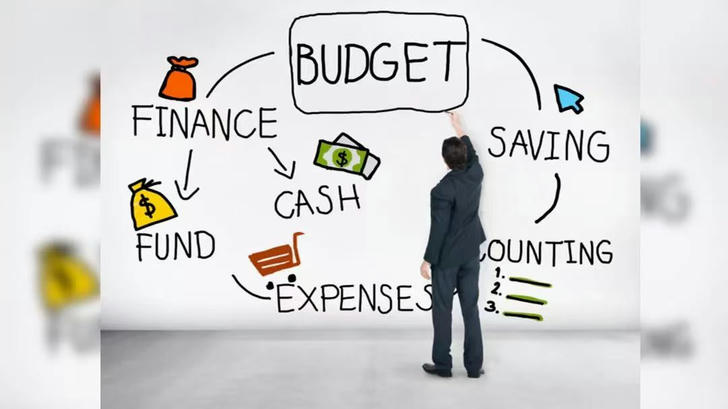Do You Really Know How to Manage Your Money?
A lot of people talk about "managing their money," but what does that really mean? Is it just about saving up a little bit each month or buying a few stocks here and there? True money management is about more than that—it’s about making sure you’re prepared for the unexpected, growing your savings, and reducing your financial stress.
Imagine your car breaks down, or you lose your job, and you suddenly don’t have enough to cover your expenses. That’s where smart money management comes in. Let’s explore how you can start managing your money wisely and avoid common mistakes.
What Does Good Money Management Really Mean?
At its heart, managing your money is about balance—balancing what you earn with what you spend, and what you save with how you invest. The goal isn’t to make a fortune overnight, but to have a solid plan that lets you feel secure now and in the future.

A common myth is that only people with a high income need to worry about financial management. But the truth is, no matter how much or how little you earn, smart money habits can improve your life. Think of it this way: just like you'd build a strong foundation before putting up a house, managing your money gives you that foundation, so when life throws you a curveball, you’re ready.
How Do You Start Managing Your Money?
1. Build an Emergency Fund
The first step is creating an emergency fund. Think of this as your financial safety net. Without it, one unexpected expense—like a medical emergency or sudden job loss—could throw your entire budget out of balance.
Take Lucy, for example. She didn’t worry about saving, figuring her regular income would cover her. But when she lost her job during a company layoff, she quickly found herself in debt just trying to pay rent. Contrast that with her colleague, James, who had set aside six months’ worth of living expenses. When he lost his job, it was stressful, sure, but he didn’t have to rush into taking just any job—he had time to look for the right opportunity, thanks to his emergency savings.
As a general rule, try to save three to six months’ worth of living expenses. Keep this money in a safe, easily accessible account, like a savings account, where you can quickly get to it if needed.
2. Set Clear Financial Goals
After securing an emergency fund, the next step is setting financial goals. Without knowing what you want to achieve, managing your money can feel aimless, like driving without knowing your destination. Your goals might be short-term, like saving for a vacation, or long-term, like buying a house or preparing for retirement.

For example, Sarah has a goal to buy a house in five years. She knows exactly how much she needs for a down payment, so she sets a plan to save a fixed amount each month. On the other hand, her friend Tom wants to start a small business in the next two years. His plan is to save aggressively for the short term and keep his investments in easily accessible accounts, so the money is ready when he needs it.
By having specific goals, you’ll not only know how much you need to save, but you’ll also have the motivation to stick to your plan, because you’re working toward something that matters to you.
3.Learn About Investing and Risks
Once you’ve got your emergency fund and your financial goals set, you can start thinking about investing. But here’s the key: investing always comes with risk. If someone promises you a quick, guaranteed return, that’s a huge red flag. The best way to lower your risk is through diversification—that is, spreading your money across different types of investments.
Think about it like this: Tim, a young professional, hears about a hot tech stock that everyone’s talking about. Without much thought, he puts all his savings into that one stock, thinking he’s going to strike it rich. But when the stock market takes a hit, he loses a big chunk of his money. In contrast, his sister Emily took a more careful approach. She spread her money across several types of investments—stocks, bonds, and mutual funds—so even when the tech stock dropped, the rest of her portfolio held steady, and she didn’t feel the hit as hard.
The key here is to match your investments to your risk tolerance and goals. If you’re young and don’t mind some ups and downs, you might invest more in stocks. If you’re closer to retirement and want more stability, bonds or dividend-paying stocks might make more sense.
Common Money Mistakes (and How to Avoid Them)
When people don’t manage their money well, it’s not usually because they don’t earn enough. It’s often because they fall into certain traps. Let’s look at two common mistakes:
1. Jumping on Investment Bandwagons
When everyone seems to be making money from a certain trend—like cryptocurrencies or hot stocks—it can be tempting to jump in, even if you don’t fully understand the risks. But that’s exactly when people make mistakes.
Take Alex, for example. When he saw his friends making money from cryptocurrencies, he put all his extra cash into Bitcoin without doing much research. A few months later, when the market crashed, he panicked and sold at a loss. His friend Maria, however, took a different approach. She didn’t follow the crowd but instead focused on learning about a variety of investment options. By spreading her money into some safe options like bonds and keeping a smaller portion in higher-risk investments like stocks, she was able to weather the ups and downs without stressing out.

The lesson here? Always do your own research and don’t chase quick profits. The best investments are the ones that fit your financial situation and goals, not just the hottest trend.
2. Ignoring Insurance as Part of Your Plan
Many people focus solely on making money and forget about protection. Insurance, whether it’s health, life, or property, plays a huge role in safeguarding your finances. Without insurance, one big accident or illness can wipe out all your savings.
Imagine Ben, a young professional who thought he didn’t need health insurance because he was in good shape. Then one day, he had a biking accident that landed him in the hospital. The medical bills were more than he could handle, and he had to dip into his savings and take on debt. Compare that with his friend Rachel, who had a solid health insurance plan. When she faced a medical emergency, the insurance covered the bulk of her expenses, and her savings stayed intact.
No one likes to think about worst-case scenarios, but insurance is about protecting yourself from the unexpected. It’s better to have it and not need it than to need it and not have it.
Practical Steps to Start Managing Your Money
If this all feels a bit overwhelming, don’t worry—money management is something you can learn and improve over time. Here are some simple, actionable steps to get started:
Start Small: If you’re new to investing, start with something low-risk, like a savings account or a government bond. As you gain more knowledge, you can try investing in mutual funds or stocks, but keep it manageable and comfortable for you.
Use Financial Tools: There are plenty of apps that can help you track your spending, budget, and even invest. Tools like Mint or YNAB (You Need A Budget) can help you set budgets and keep track of your goals. If you’re ready to start investing, apps like Acorns or Robinhood offer beginner-friendly platforms.
Check Your Progress: Managing money isn’t something you do once and forget about. You need to regularly review your budget, savings, and investments to make sure they’re still in line with your goals. Maybe your income has changed, or you’ve hit a savings goal earlier than expected. Checking in helps you stay on track and make any necessary adjustments.

Final Thoughts
Managing your money doesn’t have to be complicated or scary. It’s about building good habits, protecting yourself from the unexpected, and growing your money over time. The key is to start now—whether that’s building an emergency fund, setting financial goals, or learning more about investments. Every small step you take today gets you closer to a secure financial future.
So, do you really know how to manage your money? If not, there’s no better time to start than now!
